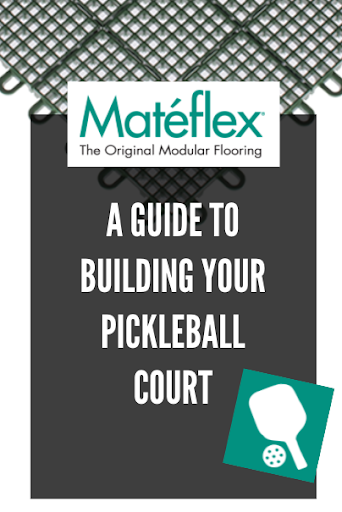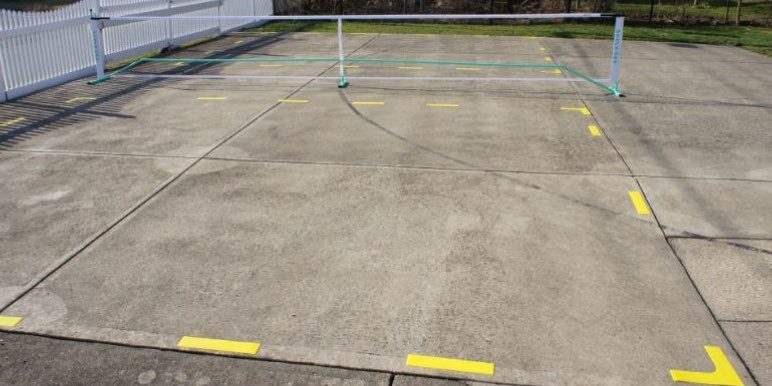Constructing a Pickleball Court Construction-- Expert Construction for Top Quality Play
Constructing a Pickleball Court Construction-- Expert Construction for Top Quality Play
Blog Article
Sustainable Practices in Pickleball Court Building You Must Know
As the popularity of pickleball continues to increase, so also does the need for lasting practices in court building and construction. The impact of these techniques prolongs much past the court itself.
Selecting Eco-Friendly Products
Choosing environment-friendly materials is a critical action in the building of lasting pickleball courts. The selection of sustainable products not just decreases environmental effect yet additionally enhances the durability and efficiency of the court. Secret products consist of reused rubber for the surface area, which offers outstanding longevity and shock absorption while diverting waste from landfills.
Additionally, utilizing locally sourced materials reduces transportation emissions and supports regional economies. Pickleball court construction. Making use of indigenous hardwoods for fencing and seating can give a lasting aesthetic while guaranteeing resilience versus the aspects.
Incorporating absorptive products for court foundations can even more add to sustainability by enabling for natural water drain and minimizing runoff. These selections not only protect regional environments but additionally promote much healthier play environments.
Reliable Drain Solutions
While the option of environment-friendly materials is crucial, carrying out efficient drain services is similarly crucial for keeping lasting pickleball courts. Proper drain not just protects the court surface from water damage however additionally minimizes erosion and overflow, advertising ecological integrity.
Efficient drain systems can consist of absorptive paving, which allows water to infiltrate the ground as opposed to pooling on the surface area. This lowers the likelihood of standing water, which can result in mold and other maintenance problems. Furthermore, integrating purposefully positioned water drainage networks and swales can guide excess water away from the court area, making sure a completely dry playing surface area and preventing dirt disintegration.
Making use of native vegetation in the landscape design around the courts can better boost water drainage by soaking up excess water and decreasing overflow. These plants require less watering and promote biodiversity, aligning with lasting methods.
Additionally, it is vital to consistently keep the drainage system to guarantee its long-lasting effectiveness. This consists of clearing particles and monitoring for clogs. By prioritizing efficient drainage solutions, pickleball court producers can significantly add to the sustainability and long life of the facility, eventually profiting both players and the atmosphere.
Energy-Efficient Illumination Options
As the need for pickleball continues to expand, incorporating energy-efficient lights choices into court layout has ended up being increasingly vital for sustainability. Standard lights systems frequently eat excessive energy, contributing to higher functional expenses and ecological impact. As a result, taking on modern-day, energy-efficient innovations is vital for both new constructions and restorations.
LED (Light Emitting Diode) lighting stands apart as a premier option due to its durability and energy cost savings (Pickleball court construction). Compared to standard illumination, LEDs utilize roughly 75% less energy and can last up to 25 times much longer, dramatically decreasing upkeep expenses. The directional nature of LED illumination lessens light contamination, making certain that illumination is focused on the court instead than surrounding locations.

Sustainable Surface Area Alternatives
Discovering lasting surface area alternatives for pickleball courts has acquired traction among players and building contractors alike. The emphasis on eco-friendly products not only lines up with the expanding environmental recognition but additionally enhances the performance and longevity of the courts.
One popular option is making use of recycled rubber, which can be sourced from made use of tires. This material supplies superb shock absorption, reducing the danger of injuries for players while promoting sustainability. Furthermore, modular tiles made from recycled plastics provide an additional sensible option. These tiles are easy to replace and install, and their flexibility enables numerous court arrangements.
Natural grass courts are likewise becoming a sustainable option, advertising biodiversity and reducing the warm island result. Nevertheless, they call for normal maintenance and water, which may not line up with all sustainability objectives.

Water Preservation Methods

Another effective strategy includes the installation of rainwater harvesting systems. These systems collect and save rain for use in maintaining court surface areas and landscaping. This strategy not just conserves safe and clean water but also lowers reliance on local sources.
In addition, utilizing drought-resistant landscaping around the courts from this source is crucial. Native plants call for much less water and are much better adapted to neighborhood climate problems, therefore lowering overall water intake. In addition, utilizing effective watering systems, such as drip watering, ensures that water is provided straight to plant origins, minimizing evaporation and waste.
Verdict
Including lasting practices in pickleball court building and construction substantially contributes to ecological preservation and source effectiveness. By prioritizing these methods, the building of pickleball courts can align with more comprehensive environmental goals while advertising durability and capability within communities.
As the popularity of pickleball proceeds to increase, so also does the requirement for lasting practices in court building.Picking environmentally friendly products is an essential step in the construction pop over to these guys of sustainable pickleball courts. By focusing on energy-efficient lights options, pickleball court manufacturers can add to a more sustainable future while satisfying the demands of stakeholders and gamers alike.Integrating lasting surface options not just improves the performance of pickleball courts however additionally paves the way for applying effective water conservation methods.Including lasting methods in pickleball court construction considerably adds to environmental conservation and source performance.
Report this page